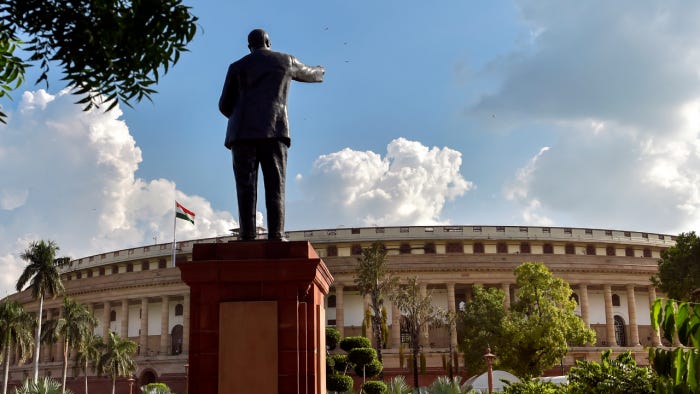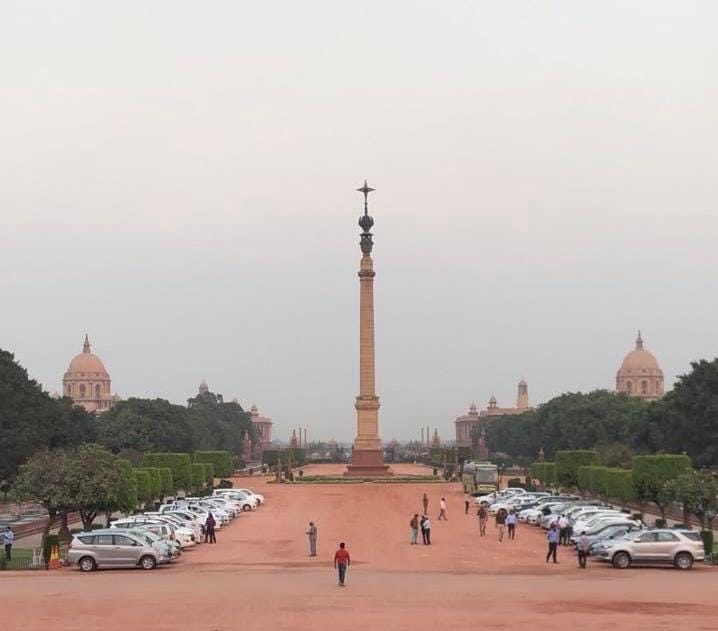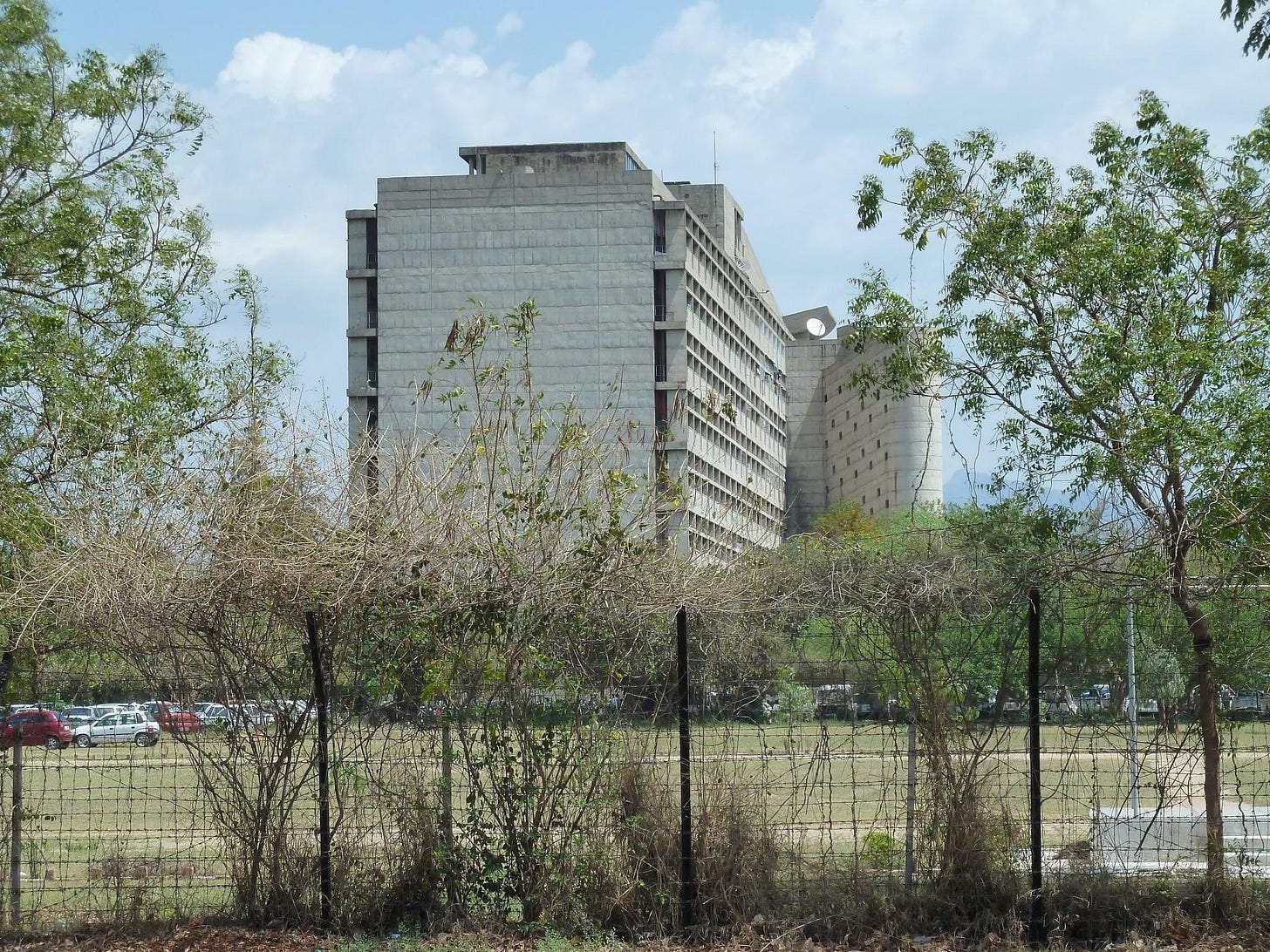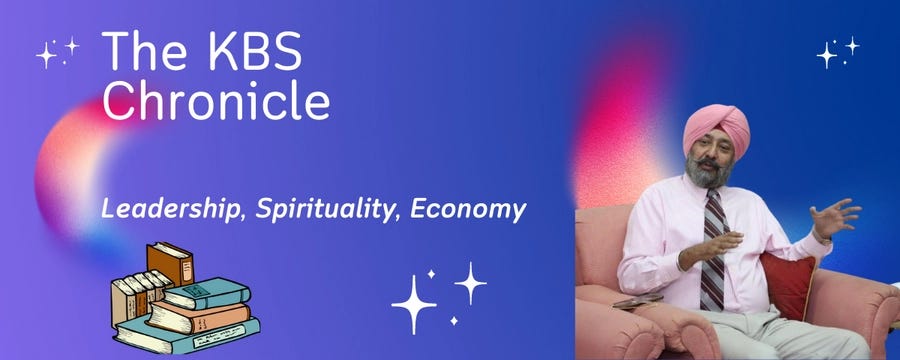The Complex Calculus of Caste and Conversion
The Cobweb of Caste Calculations
The question of caste, particularly inter-caste marriages, conversion, proselytization, and the freedom to practice and profess any religion, has remained a constant subject of discussion and discourse. This discussion extends beyond governmental and political circles and encompasses legal and academic institutions, as well as the broader public domain.
This complex issue is intricately intertwined with constitutional provisions, particularly those enshrined in the Fundamental Rights, which include the enabling provision for reservation and the abolition of untouchability. On one side, Dr. B.R. Ambedkar, often regarded as the Father of the Indian Constitution, penned a seminal paper titled the "Annihilation of Caste" in the year 1936. Yet, he played a pivotal role in incorporating the concepts of "Scheduled Castes" and "Scheduled Tribes" into the Constitution, not as fundamental rights, but as exceptions aimed at creating an enabling provision to rectify the egregious injustices endured by the 'dalits'/'shudras' for millennia within Indian society.
The Significance of Caste in Contemporary India
Article 15 of the Fundamental Rights is put on a very high pedestal, yet caste continues to wield significant influence in India's socio-economic and political landscape. Its impact is not limited to elections but pervades everyday life. A recent example is the controversy surrounding caste censuses in Bihar, with the Supreme Court's reluctance to issue interim orders being a noteworthy instance.
However, amidst this complexity, there exist critical questions that neither the Constitution nor any central or state law has definitively answered. These questions, although seemingly straightforward, possess profound implications for cases that are no longer isolated incidents. Even the various High Courts, including the Supreme Court of India, have hesitated to provide authoritative verdicts. The prevailing sentiment is that each case must be assessed and decided individually. Factors such as "community acceptance" of children born from inter-caste and inter-faith marriages, as well as religious practices within specific sects or religions, are to carefully considered but no clear-cut yes or no answers have been given.
The Objective: Delving into Unanswered Questions
This article does not aim to take sides in favour of or against the caste system, reservation policies, or religious conversions, including proselytization. Instead, it seeks to explore seemingly straightforward questions, which, in reality, possess significant depth. These questions have yet to receive definitive answers, either from the Constitution, existing laws, or constitutional courts.
Let's delve into these queries, but with a caveat that we are not formally legally trained. In any particular case, the reader is strongly urged to consult qualified legal experts for precise guidance. While we aim to provide insights and information to the best of our knowledge, legal matters can be complex and subject to specific laws and regulations.
Determining Caste Status in Mixed Marriages
Question 1: If the father belongs to a non-Scheduled Caste and the mother is from a Scheduled Caste, what is the caste status of the children? Conversely, if the father is a Scheduled Caste and the mother belongs to a non-Scheduled Caste, what is the caste of the children?
In cases where one parent belongs to a Scheduled Caste (SC) and the other does not, the caste of the children is generally determined based on the father's caste. However, there have been instances where children have been categorized as SC/ST even if only one parent is from the respective SC/ST community, provided that the child has faced social, economic, and educational disadvantages due to their caste identity. The Madras High Court ruled in 2009 that children born to one SC and one non-SC parent could be counted as belonging to either community. In such cases, the child has the right to choose their caste, either from the mother's or the father's caste, a verdict not readily accepted in other states.
In summary, the caste of children in inter-caste marriages where one parent belongs to an SC and the other does not, is generally determined based on the father's caste. However, there have been instances where children have been categorized as SC/ST based on their own experiences of social, economic, and educational disadvantages due to their caste identity. In a word, ambiguity reigns supreme.
Understanding Tribal Status in Mixed Parentage
Question 2: If the father is not a member of a Scheduled Tribe, and the mother belongs to a Scheduled Tribe, what is the tribal status of the children? Conversely, if the father is from a Scheduled Tribe, and the mother is not from a Scheduled Tribe, what is the tribal status of the children?
In India, the tribal status of children born to parents from different scheduled tribes (STs) is determined based on specific legal provisions and court rulings. The Supreme Court has ruled that children born to a tribal woman and a non-tribal man cannot claim scheduled tribe (ST) status, as they were not subjected to the disabilities faced by the tribal community. The Court emphasized that the impact of procuring a bogus caste certificate and obtaining benefits from the reserved quota would have far-reaching consequences. The caste of the father is generally considered determinative of the child's caste status in the case of inter-caste marriages or marriages between a tribal and a non-tribal. However, the presumption of the child having the caste of the father is not conclusive or irrebuttable, and the child's status may also depend on factors such as their acceptance by the tribal society to which the tribal parent belongs. Each case is examined based on its specific facts and circumstances.
In summary, the tribal status of children born to parents from different castes is generally determined based on the father's caste. However, the presumption of the child having the caste of the father is not conclusive, and the child's status may also depend on factors such as their acceptance by the tribal society to which the tribal parent belongs. In other words, the answer creates more confusion than it clears.
Caste Status and Conversion: Key Considerations
Question 3: If an individual belonging to a Scheduled Caste converts from Hinduism or Sikhism to Christianity or Islam, do they retain their caste status? If so, are they still entitled to the benefits of reservation? Can parents initiate the conversion of a minor, even if they themselves do not convert?
The question of whether an individual belonging to a Scheduled Caste retains their caste status after converting from Hinduism or Sikhism to Christianity or Islam is a matter of legal interpretation and regional variations. The issue of entitlement to reservation benefits post-conversion is also a subject of debate.
Retention of Caste Status:
In some legal interpretations, an individual's caste status is considered to be a fundamental and inherent part of their identity, regardless of their religious affiliation. Therefore, converting to another religion may not necessarily change their caste status, and they may continue to be recognized as part of the Scheduled Caste.
Entitlement to Reservation Benefits:
Whether a converted individual remains entitled to reservation benefits can be a contentious issue. Some argue that the purpose of reservation is to uplift historically disadvantaged communities, and conversion should not affect one's eligibility. Others contend that the intention behind reservation was specific to Hinduism, Sikhism, and Buddhism, and individuals who convert to other religions may no longer qualify.
Conversion of Minors:
The conversion of a minor, even if the parents do not convert, is a complex legal issue. It may involve questions of consent, the child's best interests, and the specific laws governing religious conversion in the respective state or region. The legal framework for such cases can vary.
To navigate these complex matters, individuals considering conversion or facing questions related to caste status and reservation benefits are strongly advised to consult legal experts who are well-versed in the specific laws and regulations applicable to their situation. As such, it is quite clear that a simple question does not have a straightforward answer.
Conversion and Caste Status: Examining Implications
Question 4: If a Muslim or a Christian converts to Hinduism or Sikhism, what will be their caste status for the purpose of reservation? Can an individual choose the caste into which they convert, considering their profession or other factors?
The determination of an individual's caste status for reservation purposes after converting to Hinduism or Sikhism from Islam or Christianity is a matter of legal interpretation and regional practices. The choice of caste upon conversion can vary based on several factors.
Legal Interpretations:
Legal interpretations regarding the caste status of converted individuals can vary. Some argue that conversion to Hinduism or Sikhism may allow individuals to be recognized as part of the caste associated with their chosen religion. Others contend that caste status is determined by birth and cannot be changed through conversion.
Regional Practices:
Regional practices and customary laws may influence how converted individuals are treated in terms of caste status and reservation eligibility. Some regions may be more flexible in recognizing the caste status of converts, while others may adhere to stricter interpretations.
Choice of Caste:
Whether an individual can choose the caste into which they convert can depend on regional practices and the discretion of religious authorities. In some cases, individuals may be allowed to align with a caste based on their profession, community, or other factors. However, such practices can vary widely.
It's important to note that there is no uniform nationwide approach to these matters, and outcomes can differ significantly across states and regions. Individuals considering conversion and those seeking clarity on their caste status for reservation purposes are advised to consult with legal experts who are knowledgeable about the specific laws and practices applicable in their area. And the fact is that, the legal experts can provide no satisfactory guidance.
Excommunication in Sikhism: Balancing Religious Rights
Question 5: Can a person who identifies as a Sikh and professes and practices Sikhism in accordance with the teachings of the Sikh Gurus and Sri Guru Granth Sahib be subject to excommunication by any authority? If such excommunication occurs, does it infringe upon their fundamental right to practice and preach the religion of Sikhism?
The question of whether a person who identifies as a Sikh and adheres to the tenets of Sikhism can be excommunicated is a complex issue that involves both religious and legal considerations. It's important to understand the various facets of this matter:
Religious Practices:
Sikhism, like many religions, has its own religious codes and practices. The Sikh community, including religious institutions and leaders, may have their own criteria and procedures for excommunication based on violations of these codes. Excommunication in religious contexts is generally a matter of internal religious discipline.
Fundamental Right to Practice Religion:
In India, individuals have the fundamental right to practice and propagate their religion, as enshrined in Article 25 of the Constitution. Excommunication that interferes with an individual's ability to practice their chosen religion could potentially raise legal and constitutional issues.
Legal Recourse:
In cases where an individual believes they have been unfairly or wrongfully excommunicated from the Sikh community, they may have the option to seek legal recourse. The courts may examine whether the excommunication infringes upon the individual's fundamental rights.
Community Acceptance:
The concept of community acceptance is significant in religious matters. Excommunication decisions often involve the collective will and beliefs of the community. Legal authorities may consider community acceptance when evaluating such cases.
Complexity of the Issue:
It's important to note that the issue of excommunication in religious contexts is multifaceted and varies based on religious traditions, practices, and interpretations. Decisions may be influenced by local customs and the specific religious institution involved.
In summary, the question of whether a person claiming to be a Sikh can be excommunicated and the potential infringement on their fundamental right to practice Sikhism is a nuanced matter that may require legal and constitutional scrutiny. Resolution in such cases may depend on a combination of religious practices, community acceptance, and legal considerations. Individuals facing such situations may seek legal counsel to explore their options and rights within the framework of Indian law and constitutional protections. In summary, there is no simple, universally accepted answer.
Reservation Within Scheduled Castes: A Complex Quota System
Question 6: Once an individual is verified to belong to a Scheduled Caste in a particular state, do they have the same right to be considered for reserved posts as any other person belonging to any Scheduled Caste notified by the Presidential Order for that state? In other words, is there a provision for reservation within reservation? How has a specific quota been established for Majabhi Sikhs, Ramdassia, and Valmikis within the Scheduled Caste category in Punjab?
In Punjab, there is a specific quota fixed for certain sub-groups within the Scheduled Castes (SC) category, such as Valmiki, Mazhabi Sikhs, and Ramdassias. This reservation is a result of historical and legal provisions. The Punjab Government has issued a circular in 1975, which stipulated that 50% of vacancies of the quota reserved for the SCs in in direct recruitment shall be offered to Valmiki and Mazhabi Sikhs, subject to their availability, by providing first preference from among the SC candidates.
This provision has been the subject of legal challenges and court rulings. The matter is pending before the Supreme Court, and the specific reservation for these sub-groups within the SC category is a result of historical and legal developments in Punjab.
In the case of E.V. Chinnaiah v. State of Andhra Pradesh (2004), the Supreme Court held that the Scheduled Castes form one "homogenous" group, and any inter-se classification within the Scheduled Castes would be a violation of Article 14 of the Indian Constitution. This ruling went against conventional wisdom and what would seem to be obvious. The court's decision in this case has been pending reconsideration before a 7-Judge Bench since the State of Punjab v. Davindar Singh. The case pertains to the sub-classification of castes within the Scheduled Castes for the purpose of reservation, and it has significant implications for the application of reservation policies in India. The Supreme Court's ruling in this case will have a lasting impact on the interpretation of the constitutional provisions related to reservation for Scheduled Castes.
A Call for Crystal Clear Clarity
In conclusion, we firmly believe that these fundamental questions demand definitive and authoritative answers. While we often take strong positions and engage in passionate debates on issues related to caste and religion— especially conversion—, these fundamental queries remain unanswered. This lack of clarity not only fuels unnecessary legal battles but also leads to allegations and counter-allegations.
As it stands, caste and religion continue to play pivotal roles in Indian society and politics. It is high time that we address these questions definitively, even if we have to frame new laws. However, it is our sense is that the ambiguity surrounding these matters serves the interests of the political parties, religious denominations, and members of every caste.
In this environment, it is crucial to recognize that having individual rulings is not enough; we must strive for comprehensive and authoritative rules, consistent with the Constitution. This approach ensures that justice is dispensed consistently and fairly, based on established principles and laws and equity, rather than being left to the discretion of individuals and the courts on a case-by-case basis. Clarity, in this regard, is the cornerstone of a just and equitable society.









